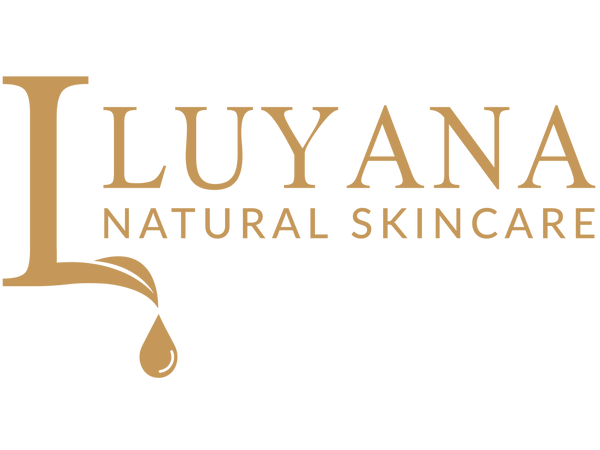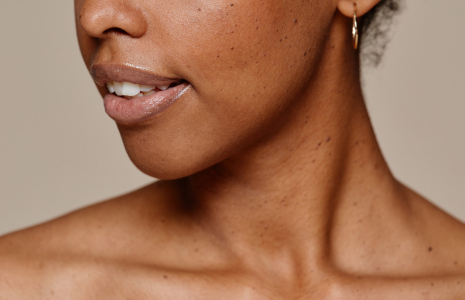
NORMAL / BALANCERET HUD
Selvom alles hud er unik og normal for den enkelte person, refererer "normal" i dette tilfælde til din huds tendenser. Hvad betyder normal hud for dig? Din hud er ikke for fedtet og ikke for tør - den 'giver' Guldlok. Dine porer er næsten ikke synlige, og du er ikke tilbøjelig til urenheder eller følsomhed. Med den rette pleje kan du nemt få en naturligt glødende teint.
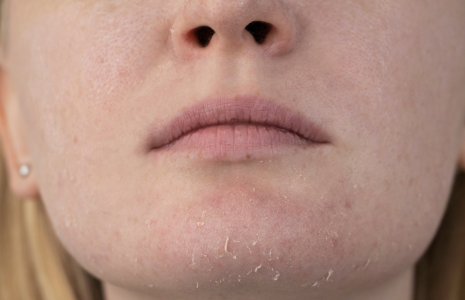
TØR HUD
Hvad betyder tør hud for dig? Det betyder, at din hud bestemt ikke 'giver' fedt. Hvis noget, er den ikke fedtet nok! Tør hud giver dig fordelen af at have næsten usynlige porer, og din hud kan nemt blive glødende og strålende med den rette pleje. Ubehandlet, tør hud kan blive betændt og rød, få matte eller kradsende pletter og revne. Den kan også have et skællende udseende.
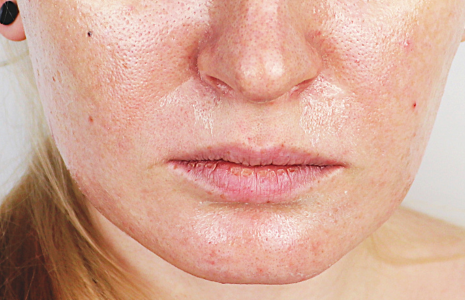
FEDTET HUD
Det betyder, at du sandsynligvis vil have tykkere hud og færre rynker! Det 'giver' evigt ung hud! Men fordi din hud har tendens til at producere overskydende olier, kan den ofte se skinnende ud, og du kan være mere tilbøjelig til at få urenheder. Du kan også have større eller mere åbne porer. Hvis du bruger makeup, skal du holde dig fra tykke, kemikalieholdige produkter, der kan tilstoppe dine porer. Kig efter produkter, der ikke er komedogene, hvilket dybest set betyder, at de ikke tilstopper dine porer.
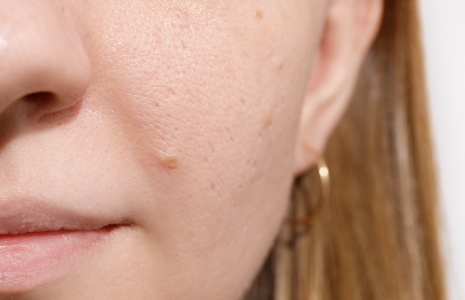
KOMBINATIONSHUD
Kombinationshud er ofte tør eller normal i nogle områder, men fedtet i T-zonen (pande, næse og hage). Men hvad betyder kombineret hud for dig? Fordi kombineret hud er så specifik for den enkelte, vil du gerne tage på et lille eventyr med selvopdagelse for at finde ud af, hvad din specifikke kombinationshud har brug for. Det 'giver' unikt som en snefnug! Det betyder, at du måske skal fugte bestemte dele af dit ansigt i dybden og anvende oliemodererende produkter på andre.
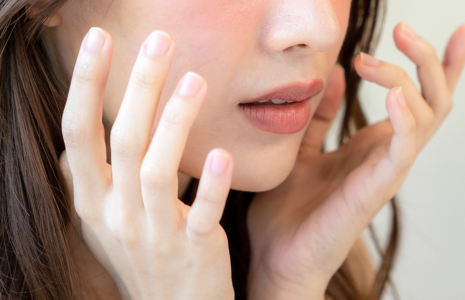
SENSITIV HUD
Det betyder, at du sandsynligvis vil opleve irritativ kontaktdermatitis (ICD) eller atopisk dermatitis som eksem. I tilfælde af ICD forårsager gentagen kontakt med et irritationsmoment på det ydre lag af din hud rødme, irritation eller udslæt. Din hud kan have en brændende fornemmelse og føles tør. Kig efter produkter, der er formuleret specielt til personer med følsom hud. Et alternativ er at gå tilbage til det grundlæggende og bruge produkter med simple ingredienser. Dine hudplejeprodukter bør ikke have mere end 10 ingredienser. Det handler om at 'give', hvis mindre er mere!
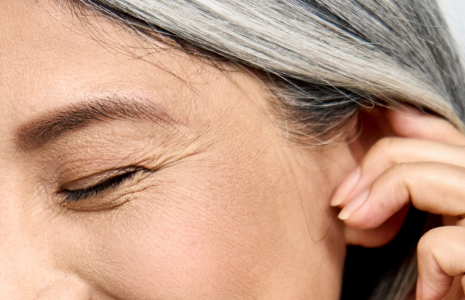
MODEN HUD
Når du bliver ældre, kan du opleve, at din hud mister sin elasticitet og bliver tyndere. Du kan også opleve, at dine døde hudceller ikke fældes lige så let, og at du ikke genererer nye, sunde celler lige så hurtigt. Dette kan give din hud et mere ru udseende og en mere ru følelse. Du kan opleve, at din hud ikke producerer så mange naturlige olier, og at du er begyndt at blive tilbøjelig til tørhed. Du kan også opleve tegn på misfarvning eller hyperpigmentering. Den vigtigste konklusion her er, at ændringer i din hud, når du bliver ældre, er normale og smukke (hej smilerynker 😍), men du leder måske efter måder at bremse aldringstegnene og holde din hud ungdommelig.
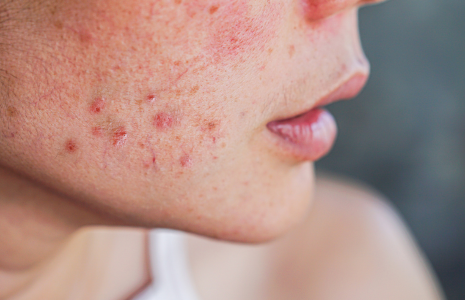
Akne-udsat hud
Dette er en almindelig tilstand, der faktisk omfatter flere forskellige hudtyper. Akne kan udløses af forskellige faktorer, herunder hormonelle forandringer, stress, sved, fugtighed, medicin og fedtet hud eller poretilstoppende hudprodukter. Generelt har personer med akneudsat hud en tendens til at have overaktive oliekirtler, hvilket kan føre til en for stor mængde olie. Denne overskydende olie kan nemt tilstoppe porerne, hvilket fører til udbrud. Så hvad betyder akneudsat hud for dig? Dybest set betyder det, at din hud kan være mere tilbøjelig til at blive betændt og irriteret. Du kan opleve akne i ansigtet, på halsen, overkroppen eller på dine overarme. Selvom dette kan lyde udfordrende, er den gode nyhed, at du kan reducere din risiko for udbrud ved at reducere mængden af poretilstoppende olie, snavs, døde hudceller og bakterier på din hud.
